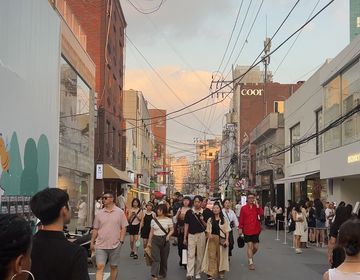What Entrepreneurs Can Learn From Building a Diverse Work Environment
Within an organizational framework, what does it mean to be diverse? When looking for your next role, you will hear the word mentioned during the application process, with recruiters championing a “diverse work environment”, and highlighting the number of female members in leadership positions or founding their own companies. In the digital age, it means remote teams scattered all over the world, collaborating with colleagues spanning different cultures and being able to hire based on skills from a global pool of capable workers. Certainly, the advancement of digital technology has allowed more opportunities for cross-cultural collaboration.
Does that mean that diversity has a positive impact on our work lives? What are some of the challenges in leading and working in cross-cultural environments and what does this mean for entrepreneurs as they aspire to build diverse teams, navigate cultural differences, and facilitate a positive collaboration process?

Recognized as the 2017 #1 Global Voice for Education on LinkedIn, Heather McGowan is an internationally known speaker, writer and thought leader who works with diverse teams addressing such challenges and helps leaders adapt to shifting work environments and she’s an expert on future work skills which includes cross-cultural competency. McGowan believes that “cross-cultural collaboration and overall cultural intelligence is essential in the future of work. Not only are we seeing increasing cultural and racial diversity through migration, we are also living in a hyper-connected and interdependent global economy where you are no longer designing products, services, and business models only for people who look like and act like you. Further, we are experiencing an entrepreneurship imperative as all net new jobs come from companies five years and younger and as such, the future of work is about new value creation”. This evidence is further supported by this recent Harvard study which theorizes that the cross-cultural experience affords entrepreneurs the ability to see a challenge or opportunity in more than one cultural context and allows them to port ideas from one country context to another. Also, it is not necessarily that successful entrepreneurs are more likely to immigrate but that the cross-cultural experiences of entrepreneurs are key to their achievements.
Despite certain political leaders saying otherwise, diversity resulting from immigration has brought many positive impacts to the workplace, McGowan says. A 2012 study by The Kauffman Foundation found that immigrants in the US start businesses at 2x the rate of native-born Americans and a 2010 study found that 40% of Fortune 500 companies were founded by immigrants or children of immigrants. A diverse work environment creates opportunities that may lead to business growth and a recent podcast by NPR explored how cross-cultural relationships can even facilitate innovation and creativity - many positive aspects and skills that can be applied by entrepreneurs to their businesses.
So what are the challenges? Communication can be problematic across all types of businesses but within diverse business environments, things can be misinterpreted quickly. In the German workplace, direct communication is valued and rewarded, but other people may misinterpret honesty as rudeness. Whilst some emotions like “happiness” and “anger” can be implied globally, the Asian concept of “saving face” often takes careful understanding to get right. Successful entrepreneurship requires true diversity leadership champions, not just in theory but also in practice. Practical solutions include learning as much as possible about different cultures by cultivating cultural intelligence, taking the time not to stereotype and allow for an individual’s characteristics and nuances to develop, and investing in ongoing intercultural training, exchange and study abroad programs.
The cities of London and Berlin offer a wonderful multicultural environment to complement our fast-tracked learning programs specifically tailored for future entrepreneurs allowing you to hone your intercultural skills in an international surrounding. As the nonprofit global leader in intercultural exchange, we invite you to join us at our cutting-edge campuses and work together with you to generate and develop your ideas.
Related Posts
Chinese New Year: The Ultimate Guide
Red envelopes, firecrackers, and a feast that puts your college meal plan to shame – Chinese New Year is the celebration of the year, and you don’t want to miss... keep reading
An Ode to my Favorite Neighborhood in Seoul: Seongsu-dong
By: Kaitlyn Kong When people think of Seoul, many may immediately envision the hustle and bustle of districts like Gangnam or Myeongdong. However, for me, there’s one neighborhood that stands... keep reading
Planning a trip to Busan in less than a week
By: Yohanan Brown As the semester was starting to come to an end my friends and I decided to take a trip to Busan. We were at dinner on a... keep reading




